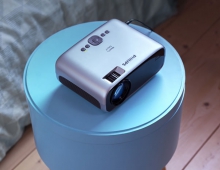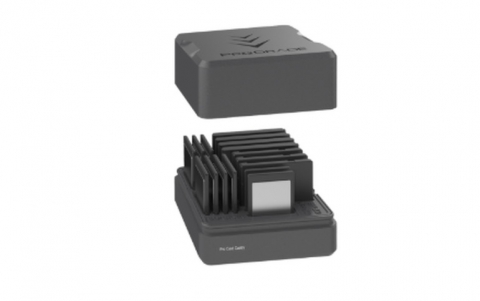
Philips Wins US Patent Infringement Case
Philips announced today that in a patent infringement case between the company and CD-Recordable and CD-Re-writable disc manufacturers.
The U.S. International Trade Commission (ITC) ruled positively in granting a general exclusion order prohibiting the unlicensed importation into the United States of recordable and rewritable compact discs that infringe any of the six patents asserted by Philips. The companies that will be affected by the ruling include Princo and Gigastorage.
Philips filed this case with the ITC in 2002 seeking to prevent unlicensed CD-R and CD-RW discs from entering the United States. The ITC had found in March 2004 that six Philips patents were valid and infringed by the manufacturers, but also determined that the patents were unenforceable because of patent misuse. After Philips appealed the Court of Appeals for the Federal Circuit (CAFC) held that the ITCs legal analysis was incorrect and remanded the case to the ITC for further proceedings consistent with its opinion.
Both Princo and Gigastorage, refused to pay royalties for the use of CD-R and CD-RW disc technology, according to Philips. As a result, Philips took the legal steps necessary to enforce its intellectual property rights.
Ben Beune, IP Licensing Director and Senior Vice President of Philips International, said "Philips welcomes the ITC decision and believes it is good news for licensed manufacturers in the market and for all companies that invest in research and development. We always believed that our approach to licensing made the most sense for manufacturers and we are gratified that the ITCs decision underlines that Philips approach to licensing is entirely legitimate and rational".
The judgment of the ITC follows previous rulings in 2005 in other court cases between Philips and each of Princo and Gigastorage in which the United States District Court in the Southern District of New York found that Princo and Gigastorage each infringed the six patents in suit, dismissing their antitrust claims and defense of patent misuse and granting an injunction forbidding further sales of the CD-R and CD-RW discs by Princo and Gigastorage in the United States.
Philips filed this case with the ITC in 2002 seeking to prevent unlicensed CD-R and CD-RW discs from entering the United States. The ITC had found in March 2004 that six Philips patents were valid and infringed by the manufacturers, but also determined that the patents were unenforceable because of patent misuse. After Philips appealed the Court of Appeals for the Federal Circuit (CAFC) held that the ITCs legal analysis was incorrect and remanded the case to the ITC for further proceedings consistent with its opinion.
Both Princo and Gigastorage, refused to pay royalties for the use of CD-R and CD-RW disc technology, according to Philips. As a result, Philips took the legal steps necessary to enforce its intellectual property rights.
Ben Beune, IP Licensing Director and Senior Vice President of Philips International, said "Philips welcomes the ITC decision and believes it is good news for licensed manufacturers in the market and for all companies that invest in research and development. We always believed that our approach to licensing made the most sense for manufacturers and we are gratified that the ITCs decision underlines that Philips approach to licensing is entirely legitimate and rational".
The judgment of the ITC follows previous rulings in 2005 in other court cases between Philips and each of Princo and Gigastorage in which the United States District Court in the Southern District of New York found that Princo and Gigastorage each infringed the six patents in suit, dismissing their antitrust claims and defense of patent misuse and granting an injunction forbidding further sales of the CD-R and CD-RW discs by Princo and Gigastorage in the United States.


















